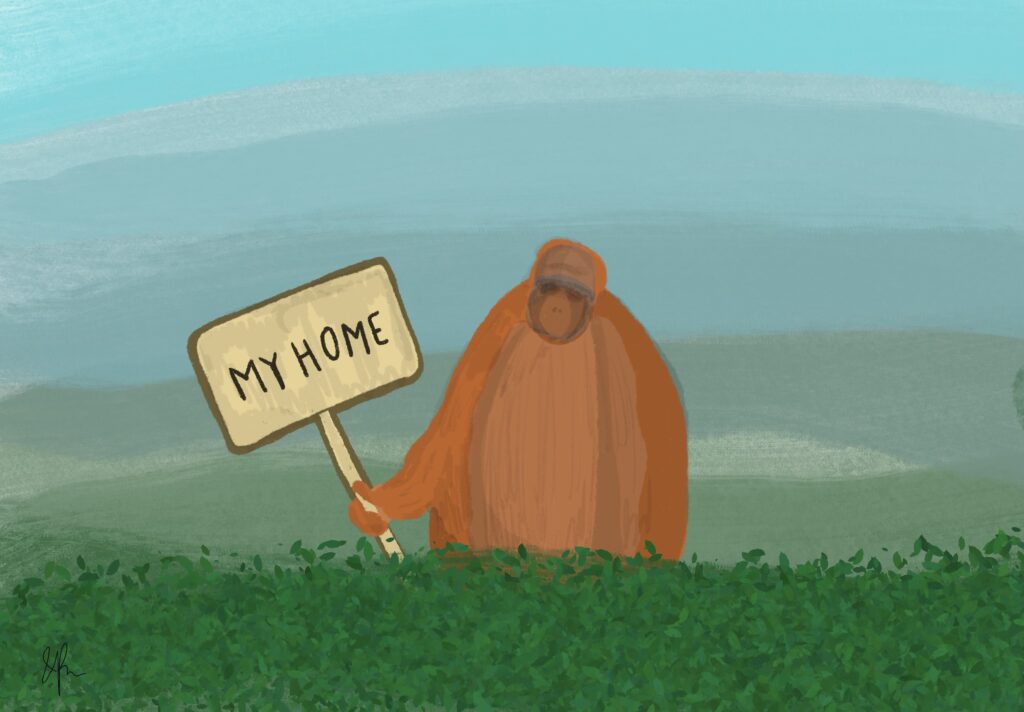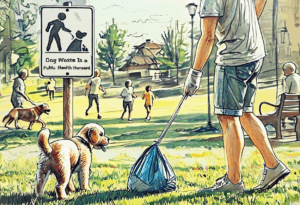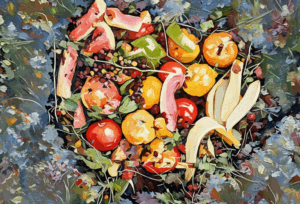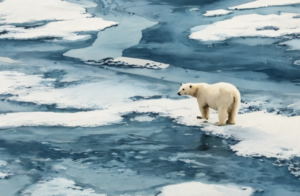
After countless debates with his only sister at the Green’s Market over which scent of shampoo, which flavoured ice cream, lip balm or lipstick, whole loaf unsliced or sliced, Will had successfully managed to return home after one arduous grocery shopping. For weekends, Will had enjoyed grocery shopping, watching Liesel tearing out of her room as fast as her short legs would carry her and replenishing food in his refrigerator for the upcoming week. Every time Will’s family outed for groceries, they always came back with a handful. They always had more fully loaded plastic bags than hands to carry them back home, which made their arms sore.
While Liesel lolled around watching and eating ice-creams, Will mowed the lawn, trimmed the flowerbeds, pruned and watered the roses and trees. Spreading the manure on the flowerbeds made his back ache and sweat poured down his face, but it wasn’t even a tad close to stopping him from it, as Will frankly believed that climate change was real and now they were at the highest level in history. Recently, the number of palm oil factories were rapidly rising and so did the greenhouse gas emissions from them. The greenhouse gas emissions trapping heat in the Earth’s atmosphere warmed temperatures, causing longer daunting and sweltering summers. Polluted air was also inevitable, and Will was frustrated with having to wear those uncomfortable and thick “N95 certified” masks to protect him against the fine particles and pollutants in the air. Ever since last summer, when his pet dog got diagnosed with lung cancer from the polluted air, Will began advocating for clean air, and composting particularly was his way of mitigating and tackling the issue of climate change and improving the air quality in his neighborhood.
As Will passed the door to the bathroom to wash his hands, he caught a glimpse of an orange silhouette out of the garden hedge. But he was too tired, and in need of rest to care for what the mystery silhouette was. He crossed to his bedroom, slipped inside, closed the door and turned to collapse on his bed.
The trouble was, there was already someone sitting on it.
Will managed not to shout out, but he was extremely close. The little creature on the bed had silky red orange fur, long arms and bulging dark brown eyes the size of golf balls. Will knew instantly that this was what had been watching him out of the garden hedge. There was a moment of silence as they stared at each other. The creature slipped off the bed and tried to hide beneath it. Will noticed patches where the creature’s once red orange fur had turned grayish and almost translucent, revealing flat spots of burnt flesh beneath.
“Er-hello, who are you?” asked Will nervously.
“Nala, Nala the Orangutan,” said the creature.
“Not to be rude or anything, but this isn’t a great time for me to have an orangutan in my bedroom. I’m tired from all the wandering and debating at the Green’s Market and this is my own space” said Will. Will didn’t want the orangutan to stay in his bedroom and told her that she had to go away.
“Your own space..?” Nala muttered. Just then, without warning, she leapt up and started destroying all of Will’s house plants, jumping around and throwing away his chocolate, instant noodles, cookies, and howled at the shampoo he just bought from Green’s Market. Will stood there, stunned by the intensity of Nala’s outburst and the raw emotion pouring forth from this unexpected visitor in his bedroom.
“Nala, you have to go away! I need a rest!” Will hissed, springing up and pulling Nala back onto the bed. “Yes…” said Nala, earnestly and stumbled towards the door.
As Nala was about to walk out, Will asked, “But Nala, just before you go. Why were you in my bedroom?”.
“Sit down, I really want to know” Will tried to look comforting, so he ushered Nala back onto his bed. At last she managed to control herself and sat with her glowy eyes fixed on Will.
“There are humans in my forest and I don’t know what to do. They destroyed all our trees for your shampoo and your food. The ice-cream, the bread, the noodles, the cookies you enjoy, and I am frightened I have lost my home. They took away my mother and my father and I am frightened they will take me away too. They are burning my forest for palm oil, and I am frightened. I don’t know what to do. My home turned into a miserable place. It became no place for a living, so I thought I’d stay with you,” Nala shuddered. As she continued describing the relentless human activities, Nala’s eyes shone with tears.
Nala’s narrative had made Will feel so cut off from the natural world- how was he so reluctant to the impact of his actions? A swirl of guilt rushed in, as he recalled his debates with Liesel whilst grocery shopping. He pondered on how we could have altered his behaviour. What if those debates with Liesel about which flavoured ice-cream they should get was on if the ice cream had a sustainable palm oil certified label? He dabbed Nala’s face with a corner of his soft fluffy blanket.
“Oh, Nala the Orangutan, now I do know what to do. I will fight to save your home and your friends. I will spread your words far and wide so that others can fight back as well.” said Will, promising Nala that he would make a difference to the world.
With a heavy heart, Will found a new sense of responsibility. Nala’s story kept resonating deeply within him, stirring his determination to take meaningful action. Will knew he couldn’t ignore the urgent call to action for any longer. There was plenty Will could do. He promised that he will continue advocating for
clean air, the deforestation and illegal black markets of orangutans caused by palm oil, to educate others about the importance of sustainable living, and to campaign for initiatives that protect wildlife and their habitats. The reminder of the interdependence of all life on Earth and the pressing need for collective action to protect our planet brought about by Nala’s presence in his room. Will stared in silence as Nala exited his room and vanished into the night. He knew that his advocacy for a sustainable future had only just begun, fueled by a commitment to making sure that Nala and her kind could thrive in a world where their forests were cherished and protected.
The next morning, Will discovered a note Nala had left on his desk.
“No matter our differences in appearance, geography or narrative, we all share this fragile planet. However, as the human population grows and more demand is placed on ecosystems to support human communities, we are all in mortal danger. If we persist in exploiting its resources unsustainably, without thought for tomorrow, we jeopardize the very foundation of life itself. The choices we make today will echo through generations, undermining global stability and resilience. Will, you are valiant and bold. Your advocacy for climate change is our beacon of hope. The time for change is now, and together, we can forge a path toward a sustainable future for all.”
The UN Secretary-General called a “code red for humanity,” which indicates that evidence of the climate crisis is irrefutable: greenhouse‑gas emissions from fossil-fuel burning and deforestation are choking our planet and putting billions of people at immediate risk as well as orangutans.
Each year between 1,000 to 5,000 orangutans are killed in palm oil concessions, and at this rate orangutans it is very likely that they will become completely extinct within the next 50 years. Palm oil isn’t just a driver of orangutan extinction, it is also bad for the environment and a major cause of climate change.
All species of orangutans are classified as “critically endangered” on the IUCN Red List. The primary cause of the critical endangered status of all orangutan species is deforestation, which is carried out to generate space for plantations and agriculture in addition to for the exotic pet trade and poaching. In the last 20 years, the orangutans have lost well over 80 percent of their habitat. Forest fires continue to be used by the palm oil industry to clear land for industrial oil palm plantations. Furthermore, because they spend the majority of their life in trees, orangutans are left homeless and become easy targets for poachers.
So, we cannot just stay silent, ignorant, and still when our futures and life on Earth are being taken away. Everyone must stay informed about the status quo and act now to secure a sustainable present and future. We must take action, hand in hand. For instance, look for the RSPO label when you go out grocery shopping to ensure you purchase products made with certified sustainable palm oil. This label gives you the confirmation that the palm oil was produced in a socially and environmentally responsible way.
Works Cited
“Save the Orangutan – the Perfect World Foundation.” The Perfect World Foundation, theperfectworld.com/save-the-orangutan/#:~:text=This%20corresponds%20to%205%20to. Accessed 15 June 2024.
WWF. “Which Everyday Products Contain Palm Oil?” World Wildlife Fund, 2019, www.worldwildlife.org/pages/which-everyday-products-contain-palm-oil. Accessed 15 June 2024.
The views and opinions expressed are those of the authors and do not necessarily reflect nor represent the Earth Chronicles and its editorial board.




